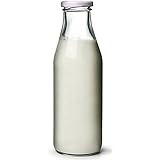Know Your Protein – Coalition Nutrition
You started lifting and the first thing you googled was probably this…

and after a few clicks, you realize one thing, you need protein. Instead of working on your diet and supplementing it with protein, you replace your entire diet with powders. It happens, we’ve all been there. Over time, more training and a few more google searches you realize that protein powder is to supplement your diet and there are various types of protein out there. Searching for the best type of protein is a daunting task and it’s usually never clear on which one is best for you because every article you read says each one is the best one out, or the latest and greatest.
The intention of this article is to break down the different types of protein so you’re fully educated on what each one does for you.
Let’s start.
 Milk Protein – 99% of your supplement products are made from milk. Both cost and absorption have a weight on this number. Within this category, there are many subcategories you need to be familiar with. Milk protein is the combination of whey and casein protein in one product. This can come in concentrate form, which means a lower % of protein per scoop or it can come in isolate form, which is a more refined form resulting in a higher protein % per scoop. Essentially, isolates have less carbs and fats taking up your calories. Milk protein tends to be thicker since it includes casein protein.
Milk Protein – 99% of your supplement products are made from milk. Both cost and absorption have a weight on this number. Within this category, there are many subcategories you need to be familiar with. Milk protein is the combination of whey and casein protein in one product. This can come in concentrate form, which means a lower % of protein per scoop or it can come in isolate form, which is a more refined form resulting in a higher protein % per scoop. Essentially, isolates have less carbs and fats taking up your calories. Milk protein tends to be thicker since it includes casein protein.
Here are the different forms of milk protein, once separated.
- Whey Protein – You’ve heard it, you’ve probably drank it too if you’re reading this article. Whey protein tends to carry the highest amount of total amino acids, which is why it’s touted as the best. Whey protein has a high solubility rate and absorption rate, which is typically why people tend to take their whey protein around training times. Beta-lactoglobulin is the main protein fraction in whey protein.

-
Whey Isolate – Whey Isolate by definition is whey protein that is 90% protein. Meaning per serving,
only 10% of the calories can come from fats & carbs. Some protein fractions can be removed during this process. Since there is less fat and carbs in isolates, they tend to digest quicker (in comparison whey concentrate, assuming an empty stomach). - Whey Concentrate – Whey concentrate is less refined than whey isolate. This means that it can be anywhere from 34%-80% purity per scoop. As a whey concentrate gets less pure, it tends to be a little more creamy, which is easier to flavor. Most quality concentrates are 80% though. Concetrates also tend to have less refining so the protein fractions can remain intact. While isolates are often preached as the highest quality, it’s usually by people who don’t realize the value in a good whey concentrate.
-
Hydrolyzed Whey – This is essentially a pre-digested whey protein that has smaller forms of protein. It is believed to digest significantly faster than whey protein, but most studies show it’s negligible. There are some positive studies showing the benefit of absorption with a hydrolyzed whey as it can start to digest earlier in the digestion process.
- Hydrolyzed Whey Isolate – You guessed it! A more refined version of hydrolyzed whey, meaning less fat and carbs. In theory, this is the fastest digesting protein on the market.
- Casein Protein – This is always touted as the slow digesting- step brother of whey. It may actually be more beneficial than you think though. Keep in mind, casein is the most abundant form of protein found in milk. Casein has a slow release (gastric emptying) which allows it to digest over a period of time. Most studies show about 8 hours. This is why casein is typically used as a morning or night time protein. Don’t let the digestion speed be a factor for not trying it as it can still be very valuable when implemented correctly.
-
Whey Isolate – Whey Isolate by definition is whey protein that is 90% protein. Meaning per serving,
 Egg Protein – This protein is powdered egg/egg whites/egg albumin. This tends to be highly bioavailable for digestion and can be a great alternative to milk based proteins. The digestion speed slightly faster than casein protein. The downside to egg protein is that most of it is shipped from China and when shortages happen, this product tends to go away quickly or rise significantly in cost. Due to this, some companies have gotten rid of their egg proteins.
Egg Protein – This protein is powdered egg/egg whites/egg albumin. This tends to be highly bioavailable for digestion and can be a great alternative to milk based proteins. The digestion speed slightly faster than casein protein. The downside to egg protein is that most of it is shipped from China and when shortages happen, this product tends to go away quickly or rise significantly in cost. Due to this, some companies have gotten rid of their egg proteins.
 Beef Protein – This is the most controversial protein out there. First and foremost it is NOT as beneficial as a high quality whey protein. Beef protein is also controversial because of the sources of it. Similar to whey protein, not all companies are/were using the highest quality
Beef Protein – This is the most controversial protein out there. First and foremost it is NOT as beneficial as a high quality whey protein. Beef protein is also controversial because of the sources of it. Similar to whey protein, not all companies are/were using the highest quality
ingredients which caused very poor absorption rates, if at all… Now if you do find a beef protein that’s quality, know that absorption isn’t as quick as whey and while the amino acid ratios differ from product to product, it typically has less total amino acids than whey. About 15% less. If whey destroys your stomach, this may be an option, although probably not optimal.
There is no right and wrong about protein powder. Some products just suit the customer better. Then there always things like amino spiking and ingredient sources that end up being your next concern. We’ll go over that all soon.
You can shop protein powders with us, to see what we approve of but you’re not limited to those options.

